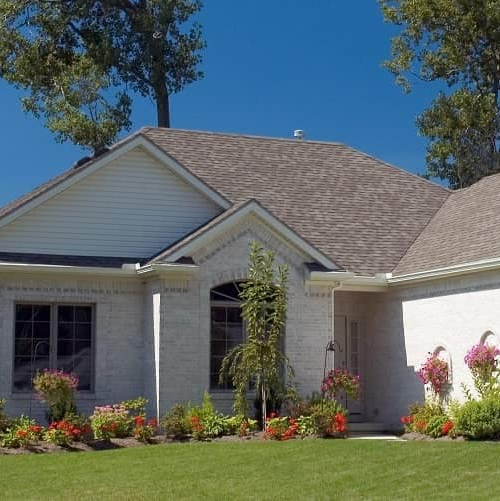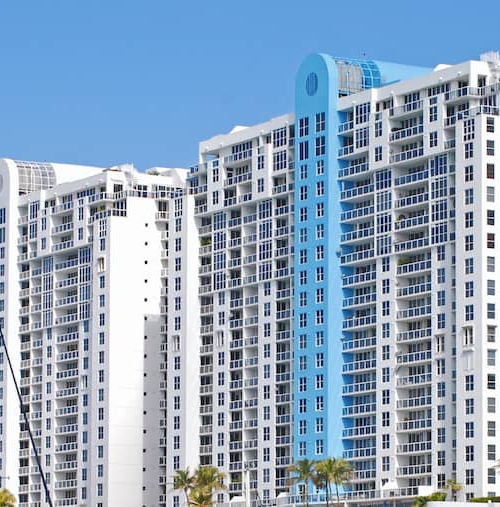What to know about condo associations: Your guide to rules, fees and insurance
Aug 21, 2025
•5-minute read
Condos often offer shared amenities, such as access to a pool, and include exterior maintenance, like snow removal, while still giving you ownership and control over the interior of your individual unit. If you're considering buying a condo, understanding how condo associations work is crucial to ensure it's the right fit for you.
What is a condo association?
A condo association is an organization comprising all individuals who own a unit in a condominium building or development. Typically, the association is managed by a board elected by the condo owners or a property management company hired by the owners.
The condo association is responsible for managing the shared aspects of the condo, including hallways, the exterior of the building, and any amenities such as pools. That means the association collects any fees, allocates funds as needed, and creates and enforces rules regarding the use of the building and its amenities.
The association generally governs how owners can use shared spaces. Condo owners own and control the interior of their units, which are not subject to regulation by the board or its rules. However, renovations and changes that affect other units may be subject to its control.
Condo association vs. homeowners association
Condo associations and HOAs are similar. The key difference is in what the owners involved in each organization own.
In a condo association, each member is the owner of the interior of their unit and is a joint owner of the building's shared areas. In other words, you own your unit, but you also have a share of ownership in the pool, tennis court, lobby, parking garage, etc.
In an HOA, owners own only their property and have no ownership interest in any shared areas. HOAs are usually independent entities from the owners or owned by the developer of the neighborhood.
How does a condominium association work?
Condominium associations manage and operate common areas on the property, setting rules and assessing fees to cover repairs and maintenance.
Condo association rules
Condo associations have rules that the owners of a condo building must follow. These rules usually are explained in a restrictive covenant, sometimes called CC&Rs (covenants, conditions, and restrictions), which is a clause in the property deed that limits how an owner can use their property.
The rules are often intended to help protect each condo owner's investment in the property by preventing other owners from reducing the property's value.
Common CC&Rs include:
- Noise. Specific quiet hours may be enforced, as well as limits on the amount of noise a property can generate.
- Pets. Certain breeds of animals may be banned, or there may be a limit on the number of pets an owner can have.
- Garbage disposal. Owners may need to follow specific rules when handling trash, such as using only designated trash cans and not leaving bags on the curb.
- Renovations. Some improvements and renovations, especially ones that affect other owners, may not be allowed or require additional approval from the condo association.
Historically, CC&Rs have been used for negative reasons, and some types of restrictions have been deemed illegal. For example, some communities have CC&Rs barring the sale of property to others based on their race, gender, or sexuality. These covenants are unenforceable.
Condo association fees and other costs
If you live in a condo association, you'll have to pay a monthly condo fee. These fees help the condo association pay any necessary costs.
When it comes to your condo association's finances, there are a few key terms to know.
Operating fund
A condo's operating fund is a pool of money that's funded by condo fee payments from owners. It's used for everyday expenses, such as the maintenance and upkeep of the building's fitness rooms or yard.
You can think of your payments to the operating fund as equivalent to the amount you'd need to set aside for maintenance each month if you lived in a single-family home or a townhome.
Reserve fund
A condo association's reserve fund is like a savings account that condo associations keep funded to help pay for major upgrades or unexpected repairs. Typically, a portion of your monthly condo fees is allocated to this fund, which is used only when necessary.
For example, if the building's roof springs a leak or a common amenity, such as a pool, needs an upgrade, the association will usually use money from the reserve fund.
Special assessment
A special assessment is an additional, unplanned amount that condo owners must pay to the condo association, in addition to their monthly condo fees. This can happen if an expense arises that the reserve fund cannot cover.
Special assessments can be lump sums or payments, or additions to your regular monthly condo fee.
Typically, a special assessment must be approved by the condo association, but once approved, owners are required to make the payment based on the CC&Rs in the deed. If you try to refuse to pay the special assessment, the condo association could sue you, block you from community resources, or even put a lien on your property.
Condo association insurance
People who own units in a condo typically carry an insurance policy to help protect their unit in the building from financial problems, but most homeowners insurance policies won't cover shared areas in a condo.
Instead, most condo owners buy condo insurance to protect themselves while the condo association purchases an association insurance policy.
The policies are paid out of the condo fees paid by the association's owners and cover things like liability for injuries in common areas and damage to shared amenities or structures like the roof or exterior of the property.
The bottom line: A condo could be right for you
A condo is similar to an apartment, but you own it rather than rent it. When you live in a condo, you'll be part of a condo association and pay monthly fees to cover the building's joint maintenance, giving a good mix between homeownership and reduced maintenance responsibilities.
If you think that buying a condo is a good fit for you, get started with an online application for a condo loan.

TJ Porter
TJ Porter has ten years of experience as a personal finance writer covering investing, banking, credit, and more.
TJ's interest in personal finance began as he looked for ways to stretch his own dollars through deals or reward points. In all of his writing, TJ aims to provide easy to understand and actionable content that can help readers make financial choices that work for them.
When he's not writing about finance, TJ enjoys games (of the video and board variety), cooking and reading.
Related resources

7-minute read
Condo loans defined and explained
Planning to purchase a condominium? Discover how condo loans may differ from conventional home mortgages so you can have a smooth home buying experience.
Read more

5-minute read
Condo vs. house: Which is best for you?
Trying to decide between buying a condo or a house? Learn the key differences in cost, maintenance, lifestyle, and more to make the right choice for you.
Read more

6-minute read
FHA-approved condos: The approval process and where to find them
Learn what FHA-approved condos are, how to find this less common type of homes, and how to secure FHA financing as you begin your condo buying process.
Read more